China: Needed but not well-loved in Cambodia
Cambodian commentator Sokvy Rim explains why recent Chinese immigrants in Cambodia are viewed with suspicion and even some dislike despite major Chinese investment flows in Cambodia and related economic benefits.
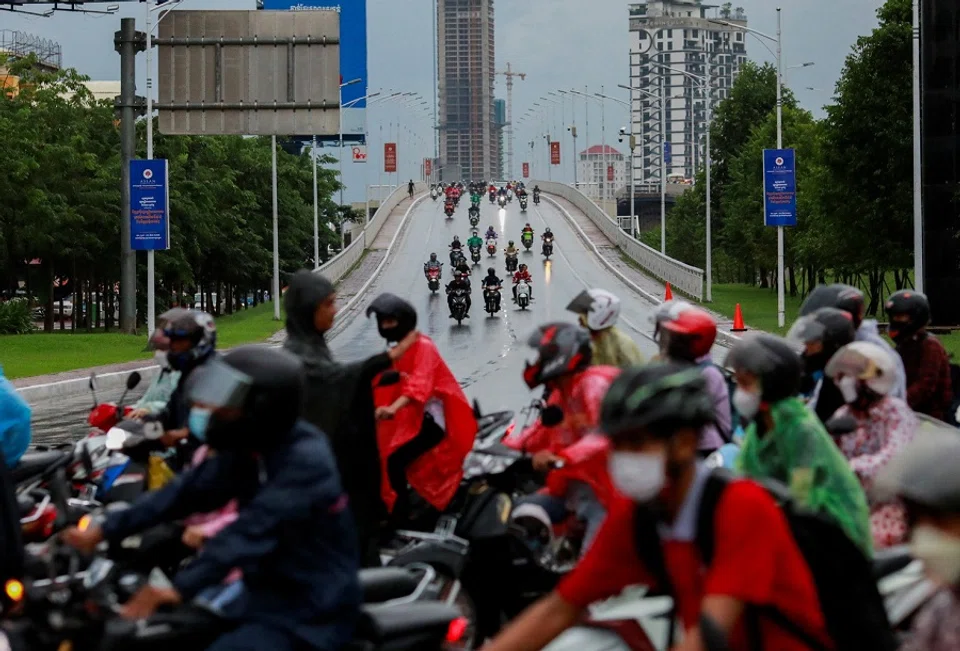
China sees Cambodia as its key ally in the region and has provided a lot of political support and financial assistance to it. On the diplomatic level, China has always voiced support for Cambodia's approach in dealing with its domestic issues. For instance, in 2017 when Cambodia's supreme court dissolved Cambodia's largest opposition party, the Cambodia National Rescue Party (CNRP), the US and Western countries expressed concern and perceived it as a sign of democratic regression. In contrast, China supported Cambodia's decision to dissolve the CNRP; at the Asia-Europe Meeting (ASEM) Foreign Ministers Meeting in Myanmar in 2017, Foreign Minister Wang Yi told Cambodian Foreign Minister Prak Sokhon that China supported the Cambodian government's efforts to protect its political stability.
China strong partner, but not well-liked
On the economic front, China is Cambodia's largest trading partner; trade with China reached US$11.2 billion in 2021, constituting 23.33% of Cambodia's total trade volume. China is also a large source of foreign direct investment. In 2020, fixed-asset investment from China reached US$1.39 billion and increased 67% to US$2.32 billion in 2021, which constitutes more than half of foreign investment in Cambodia. Most of the investments are in labour-intensive sectors such as garments and textiles, providing jobs for around 800,000 people during the pandemic.
Evidently, the Chinese government needs to do more to win the hearts and minds of the Cambodian population.
Although Cambodia has gained reciprocal benefits from its close relations with China, Chinese soft power in Cambodia remains low compared with other external partners such as the US and Japan.
A paper series published by the University of Cambodia in 2017 shows that 81.7% of the respondents (500 students) see China as having closer relations with Cambodia compared with the US. However, 72.6% of the respondents want Cambodia to have close relations with the US in the future.
Similarly, a 2021 ISEAS-Yusof Ishak Institute paper by Luo Jing Jing and Kheang Un concluded that "Japan has won the 'hearts and minds' of the Cambodian public... Conversely, China's soft power appears to have landed in a hard place in Cambodia." A lack of soft power will constrain future relations between the two countries. Evidently, the Chinese government needs to do more to win the hearts and minds of the Cambodian population.
New Chinese immigrants gain bad rep
Chinese immigration has a long history in Cambodia dating back to the Funan Kingdom. In the 13th century, a Chinese diplomat, Zhou Daguan of the Yuan Dynasty, visited the Angkor empire, an ancient Khmer kingdom. He described in his memoir that there were a few Chinese community settlements in Cambodia then.
Going into the modern era, in the 1960s and 1970s, there were around 425,000 Chinese nationals living in Cambodia. However, anti-Chinese sentiment was not as marked as anti-Vietnamese sentiment, until the recent influx of Chinese immigrants into Cambodia.
Unlike the old Chinese who focus mainly on economics, the new Chinese are more involved in politics and tend to exploit Cambodia's weak political system for their business operations in Cambodia.
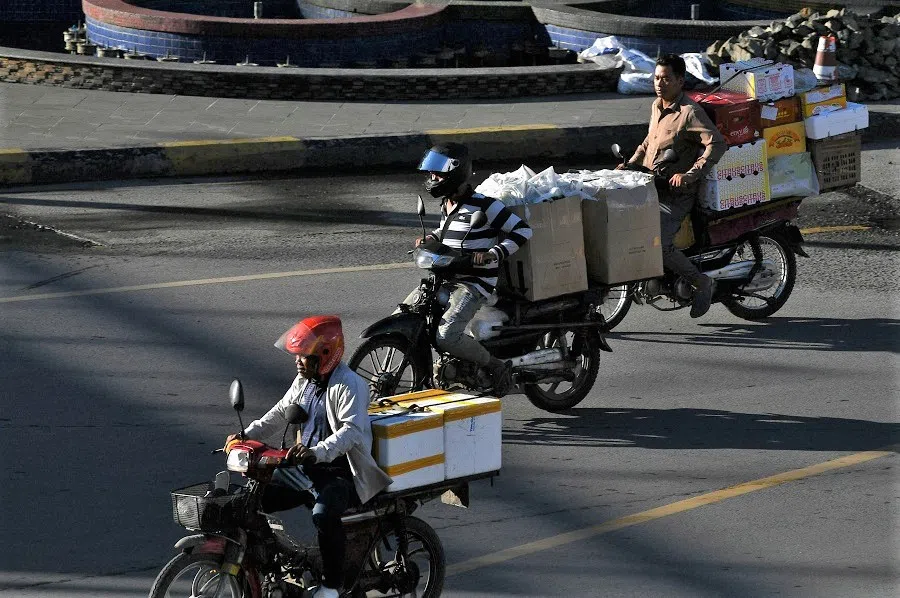
The rise of Chinese immigration itself did not lead to the decline in Chinese soft power in Cambodia. But anti-Chinese sentiment stoked by land grabs and heightened social tensions and societal issues involving the new Chinese (the Chinese who arrived in Cambodia after the Paris Peace Agreement signed in 1991) has had an impact.
Fighting over land
Unlike the old Chinese who focus mainly on economics, the new Chinese are more involved in politics and tend to exploit Cambodia's weak political system for their business operations in Cambodia. By maintaining close relations with powerful Cambodian elites, it is easier for them to conduct business in the kingdom.
This can be seen from the controversy surrounding the Chinese company Tianjin Union Development Group (UDG). It had received a land concession of around 45,000 hectares for development from the government in 2008 and 2011 on a 99-year lease. The development area encompasses 20% of Cambodia's coastline.
The US Department of the Treasury's Office of Foreign Assets Control sanctioned UDG under concerns of human rights abuses and corruption. Namely, it charged that the UDG had falsely registered as a Cambodian company, and obtained a senior Cambodian general's assistance in obtaining the land. It noted that Kun Kim "was instrumental in the UDG development and reaped a significant financial benefit from his relationships with UDG".
The project has affected over 1,000 families who have been fighting for fair compensation for over a decade. Last year, 1,333 families were given a final chance to accept compensation from the government by joining a land titling lottery.
The largest parcels of such land coming up to around 400,000 hectares are in the hands of 30 Chinese companies...
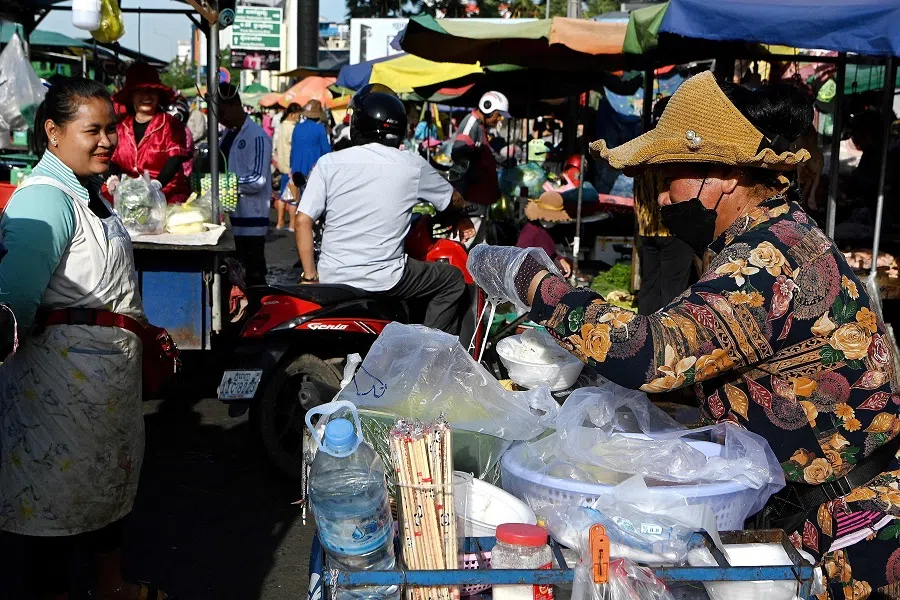
So far, around 2.1 million hectares of land have been given as land concessions to private companies. The largest parcels of such land coming up to around 400,000 hectares are in the hands of 30 Chinese companies, some say awarded in part due to Chinese investors' strong political ties with local political elites. This has caused land conflict and forced displacement in Cambodia.
This practice has raised concerns of forced displacement particularly for people in rural areas.
Chinese investment has also brought about a rapid surge in real estate prices in Cambodia. Some local property owners in Preah Sihanoukville have revealed that they earned around US$20,000 per month from renting to Chinese investors. With the stream of Chinese coming in, corrupt officials and affluent people have been encouraged to wrest land from their owners. In October 2018, there was a report of Chinese real estate developers encroaching on Prek Toub Lake, which was the main source of water for the province. This practice has raised concerns of forced displacement particularly for people in rural areas.
Land disputes continue to be a prevalent issue in Cambodia. On 6 September 2022, around 1,000 people from Kampong Speu and Koh Kong province protested in front of the Ministry of Justice in the capital city of Phnom Penh, demanding the government to solve their land dispute with politically connected businesspeople. In October 2021, human rights group Cambodian League for the Promotion and Defense of Human Rights (Licadho) revealed that there had been around 5,000 families affected by the ongoing land grabs in the past two years.
... the Chinese prefer to go to Chinese restaurants and shops rather than Cambodian ones, contributing to the latter going out of business.
Diverting business from local Cambodians
Secondly, the new Chinese immigrants in Cambodia are less integrated into Cambodian society in the sense that they tend to interact among their own nationality. For instance, the rise of deep-pocketed Chinese investors and businesspeople have led to an influx of Chinese immigration into Cambodia as they tend to hire Chinese nationals rather than local Cambodians. In addition, the Chinese prefer to go to Chinese restaurants and shops rather than Cambodian ones, contributing to the latter going out of business.
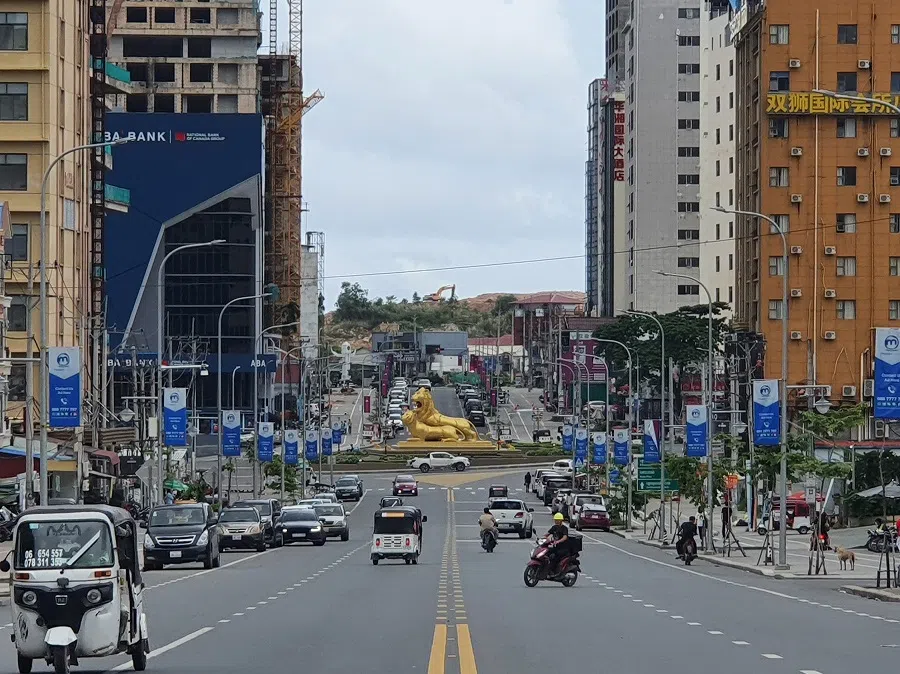
A 2019 report by Phnom Penh Post revealed that around 90% of businesses in Sihanoukville province are owned by the Chinese. Many Cambodians are concerned with this trend. Indicatively, a survey on Cambodian perceptions of the new Chinese revealed that there is a high level of social tension between Cambodians and the new Chinese. Among 100 respondents, 45% of them see that there is a high social tension while 14% of them see that there is very high social tension. Such responses are a reflection of the lack of interaction between the Chinese and Cambodian communities.
... the rise of Chinese immigration has caused social problems such as forced detention, call scams and crime in Cambodia, particularly in Preah Sihanoukville.
Magnets for scams and crime
Finally, the rise of Chinese immigration has caused social problems such as forced detention, call scams and crime in Cambodia, particularly in Preah Sihanoukville. The issue has gained particular attention in Cambodia and outside the country as there are headlines reporting of the wide spreading of forced labour and human trafficking associated with the Chinese in Cambodia.
For the first half of 2022, there have been reports of 250 Vietnamese rescued from Cambodia. On 18 August 2022, there were videos uploaded and circulated by viewers on social media of 42 Vietnamese trying to escape a casino owned by a Chinese national in Kandal province and swimming across the Binh Di River to Vietnam as they were chased by the casino's guards. One Vietnamese was caught by a casino owner, and one Vietnamese drowned in the river. On 23 August 2022, there were reports that the Taiwanese authorities had identified 370 Taiwanese being detained in Cambodia while another 5,000 Taiwanese reportedly travelled to Cambodia and have not come back.
With crime associated with the Chinese and its consequences falling on Cambodia, it is only worsening the negative perceptions toward the Chinese in Cambodia.
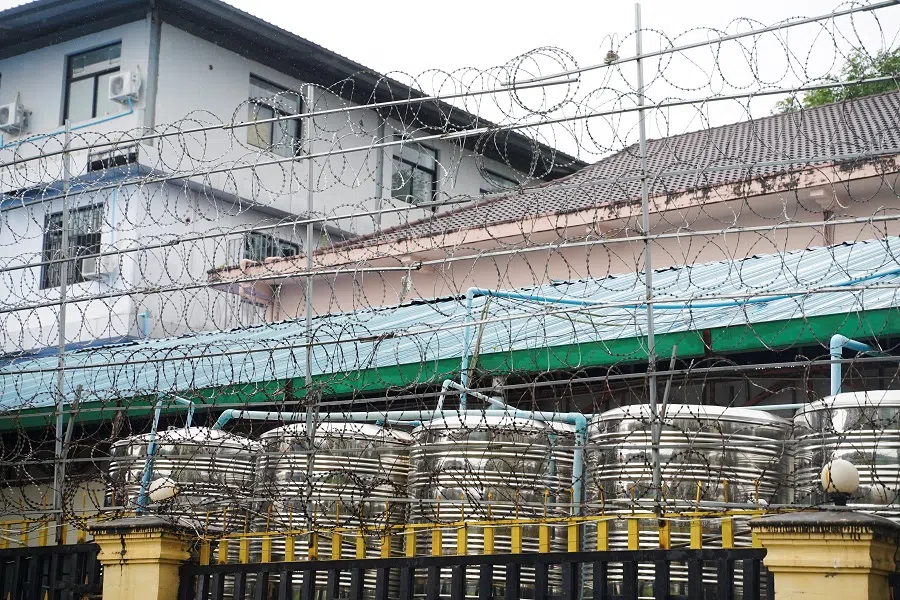
Similarly, conversations on human trafficking in the Chinese language on the Telegram group channel called "White Shark Channel" have been exposed, revealing the underground supply and demand of human trafficking across Asia. The advertisements in the Telegram group also revealed "the flood of offers from Cambodian operators to the fake job-seeking ad were much more forthright" which came from Bavet, Chrey Thom, Phnom Penh, Poipet, Pursat and Sihanoukville, said a VOD article.
These are a few examples of the many cases involving scam activities in Cambodia. The issue is of great concern to the Cambodian government as it has put Cambodia in a bad light on the international stage. The US State Department's 2022 annual Human Trafficking Report dropped Cambodia from its Tier 2 Watch List to Tier 3, which reflects a lack of effort on the Cambodian government's part in addressing the issue of human trafficking. With crime associated with the Chinese and its consequences falling on Cambodia, it is only worsening the negative perceptions toward the Chinese in Cambodia.
In conclusion, despite close cooperation between the governments of the two countries in terms of economic and political relations, Chinese soft power in Cambodia remains weak compared with other Cambodia's external partners such as the US and Japan. Hence, China needs to focus on a people-centric approach as the population is the key driver of foreign policy. Chinese influence in Cambodia is limited if the majority of Cambodians hold a negative opinion towards the Chinese.
Related: Why Cambodia is leaning towards China and not the US | Is Cambodia overly dependent on China? | How China became Cambodia's important ally and largest donor | Cambodia: Hard landing for China's soft power? | The revival of Sihanoukville, Cambodia's 'Gold Rush' city | Kidnapped and abducted, Chinese nationals are falling victim to cross-border crimes in Cambodia | Chinese scam rings in Cambodia drawing recruits from Southeast Asia



![[Video] George Yeo: America’s deep pain — and why China won’t colonise](https://cassette.sphdigital.com.sg/image/thinkchina/15083e45d96c12390bdea6af2daf19fd9fcd875aa44a0f92796f34e3dad561cc)
![[Big read] When the Arctic opens, what happens to Singapore?](https://cassette.sphdigital.com.sg/image/thinkchina/da65edebca34645c711c55e83e9877109b3c53847ebb1305573974651df1d13a)
